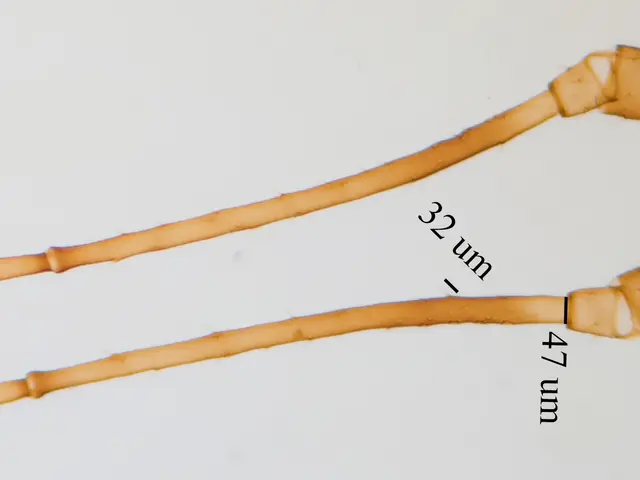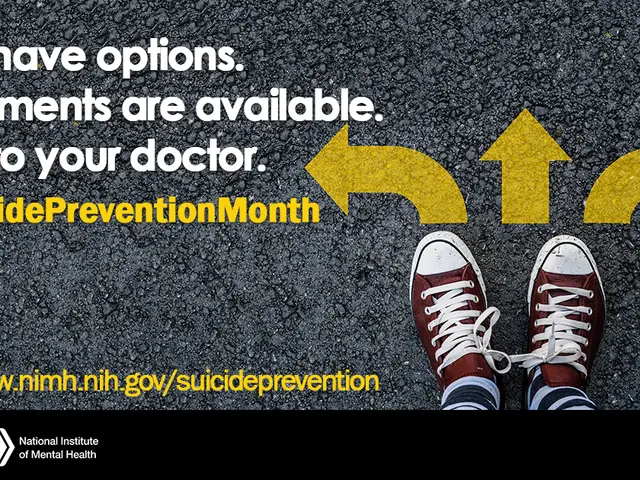Strategies to Reduce Cholesterol Levels: Prescription Medications and Natural Solutions
In the pursuit of maintaining heart health, understanding cholesterol medications is crucial. Here's a breakdown of some common drugs used for lowering cholesterol levels, their mechanisms, side effects, and benefits.
Statins, the most commonly prescribed cholesterol-lowering drugs, inhibit a liver enzyme crucial for cholesterol production. Examples include Atorvastatin (Lipitor), Rosuvastatin (Crestor), Simvastatin (Zocor), Lovastatin (Mevacor), Pravastatin (Pravachol), Fluvastatin (Lescol), and Pitavastatin (Zypitamag, Livalo). They effectively lower LDL ("bad cholesterol"), raise HDL ("good cholesterol"), reduce triglycerides, and lower the risk of heart attack and stroke by 25% to 35%. Common side effects include muscle pain and digestive issues, while serious side effects are rare but possible.
Zetia (Ezetimibe) is a non-statin medication that reduces cholesterol absorption in the small intestine. It is often used with statins for better LDL cholesterol lowering. Diarrhea is the most common side effect, with other potential issues including upper respiratory infections, joint pain, sinusitis, muscle pain/cramps, increased liver enzymes, and allergic reactions.
Fibrates, such as Gemfibrozil (Lopid) and Fenofibrate (Tricor), target triglycerides specifically by decreasing liver release and increasing breakdown of triglycerides. They may also slightly raise HDL cholesterol, which statins do not usually affect. Common side effects include muscle aches, stomach pain, gallstones, altered liver enzymes, and altered kidney function.
Omega-3 supplements, found in fish oil, can increase omega-3 intake and potentially lower the risk of heart disease, stroke, and heart attack by helping the body remove excess cholesterol. However, they can sometimes cause bleeding, particularly in people on blood thinners or with bleeding disorders.
Eating cold-water fatty fish like albacore and tuna a few times a week can also increase omega-3 intake. Niacin, a natural cholesterol remedy, may reduce blood fats and is available over-the-counter, but the prescription form is more effective and may be recommended by a doctor.
Resins help the intestines eliminate more cholesterol during digestion by attaching to bile. Soluble fiber supplements are available for purchase and eating foods rich in soluble fiber, such as many vegetables, fruits, barley, oats, and soy products, can help lower cholesterol.
Several prescription drugs can lower cholesterol, including statins, cholesterol absorption inhibitors, PCSK9 inhibitors, fibrates, and resins. PCSK9 inhibitors work in the liver to lower LDL cholesterol by binding to the PCSK9 protein. High-density lipoprotein (HDL) cholesterol helps remove LDL cholesterol from the body and transport it back to the liver. Low-density lipoprotein (LDL) cholesterol can accumulate in the arteries, increasing the risk of heart disease.
Approximately 95 million adults aged 20 and over in the United States have elevated total cholesterol levels, underscoring the importance of cholesterol management. Lowering cholesterol without drugs can involve avoiding trans fats, reducing saturated fat intake, strength training and aerobic exercise, maintaining a moderate body weight, eating a relatively low-fat diet rich in fruits and vegetables, cutting visible fat off meat, quitting smoking, and talking to a doctor about controlling diabetes with medication and lifestyle changes.
In summary, these medications have distinct roles and side effect profiles. Statins remain first-line for cholesterol lowering, while Zetia and fibrates are valuable adjuncts or alternatives based on individual patient needs and lipid abnormalities. It's always best to consult with a healthcare professional for personalised advice.
- Understanding various personas in heart health requires knowledge of medications beyond statins, such as Zetia, fibrates, and omega-3 supplements.
- The heart pharmacy doesn't only stock statins; other drugs like Zetia and fibrates are established for cholesterol management, fitting into different roles based on individual needs.
- In the pursuit of comprehensive heart health, the benefits of omega-3 fish oil extend beyond lowering bad cholesterol, aiding in the prevention of other heart diseases.
- For individuals seeking means to combat high cholesterol levels, science has provided a bouquet of options, including both prescription drugs (statins, Zetia, fibrates, etc.) and natural remedies like niacin and omega-3.
- A myriad of medical conditions, like other heart diseases and high cholesterol, can be managed through proper nutrition, fiber intake, and fitness-and-exercise regimens.
- Maintaining heart health-and-wellness involves considering not just medications, but also the role of diet, nutrition, and lifestyle changes in addressing cholesterol levels and triglycerides.
- Health-and-wellness seekers must be aware that heart conditions can manifest in various forms, from high cholesterol to high triglycerides, and understanding these can inform the right choice between medications like statins, Zetia, and fibrates.
- The wellness-conscious community should be vigilant about potential side effects of cholesterol-lowering medications, including muscle pain, digestive issues, and even rare but serious side effects like allergic reactions and increased liver enzymes.
- In the world of medicine, certain drugs, like omega-3 supplements and niacin, have shown promise in improving heart health, albeit with individual consideration for potential side effects such as bleeding and allergic reactions.
- For many Americans suffering from high cholesterol and elevated total cholesterol levels, seeking medical advice can lead to personalized treatment plans, considering a variety of options from cholesterol medications, fiber supplements, to lifestyle changes in diet and exercise.





